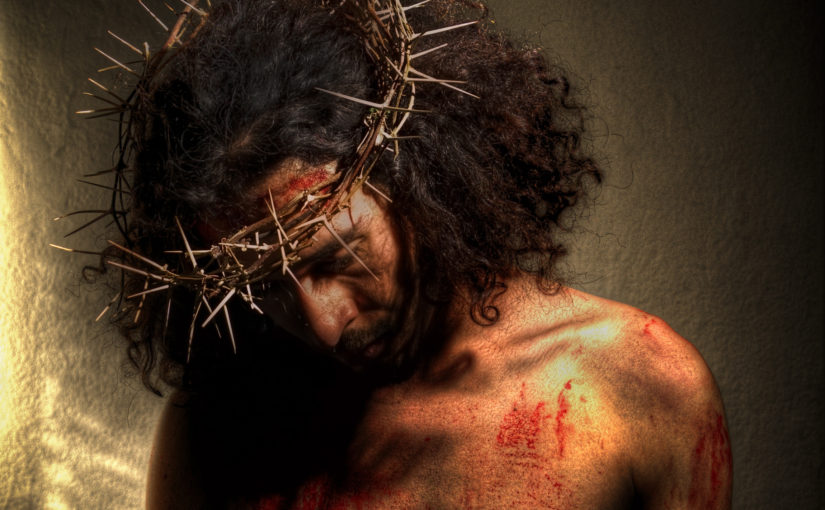Last night, I talked about the New Testament theme of kenosis, which is the idea of self-emptying, of pouring oneself out. Last night, we talked about that in terms of the call to service: that Jesus himself got up from table, tied a towel around himself and took the lowest position, washing the feet of his disciples. We reflected on how we are all called to that kind of kenosis, giving up our entitlement to see to the salvation of everyone in our life. Today, I’d like to take another brief look at kenosis, because today we see that idea played out in its ultimate form.
I said yesterday that kenosis applied to our Lord, who, as Saint Paul wrote to the Philippians, “emptied himself, taking the form of a slave, coming in human likeness; and found human in appearance, he humbled himself, becoming obedient to death, even death on a cross.” That’s today, of course. It echoes what Isaiah says of the suffering servant in today’s first reading. The suffering servant’s appearance is so marred, stricken, so infirm that we cannot bear to look at him. It shouldn’t be that way; he is our God. But that’s kenosis.
The reason we can’t bear to look on him, of course, because if we really looked hard enough, we know, in our heart of hearts, that the marring, the strickenness, the infirmity are all ours. This is a dark hour. It seems like all is lost. That’s one of the few guarantees that this fleeting life gives to us. We will have to bear our own cross of suffering: the illness or death of loved ones, the loss of a job, the splintering of a family, or even the shame of addictive sin. It is our brokenness that we see in the suffering servant, our sinfulness on the son of man. And this suffering servant is embodied by our God, Jesus Christ our Savior, who carries all of that nastiness to the cross, and hangs there before us, bleeding and dying and crying out in agony. That’s our sin, our death, our punishment – and he bore it all for us. He chose to pour himself out – for us.
And just when it seems like there is nothing left for him to give, when it seems like all life has been snuffed out, when it seems like death has the upper hand, the soldier thrusts his lance into the side of our Lord, and he pours himself out in one more glorious act of kenosis: from his side pours forth the life blood and water that plants the seeds of the Church into the barren ground of the earth, guaranteeing the presence of the Lord in the world until the end of time. Christ our God gives everything he has for us, takes away all that divides us, and performs the saving sacrifice that makes salvation possible for all people. Our God gives up everything – everything – for love of us.
We know that the suffering and death of Jesus is not the end of the story. In the day ahead, we will keep vigil for the Resurrection of the Lord which shatters the hold that sin and death have on us. We are a people who eagerly yearn for the Resurrection. We certainly hope for the great salvation that is ours, and the light and peace of God’s Kingdom. But that’s for tomorrow. Today we remember that that salvation was bought at a very dear price, the price of the death of our Savior, our great High Priest. Today we look back on all of our sufferings of the past or the present, we even look ahead to those that may yet be. We see all those sufferings up there on that cross, willingly taken there by our Saving Lord. And as we sit here in God’s presence we know that we are never ever alone in our dark hours, that Christ has united himself to us in his suffering and death. May we too unite ourselves to him by embracing our own suffering, and walk confidently through it with him, pass the gates of salvation, and enter one great day into God’s heavenly kingdom.
